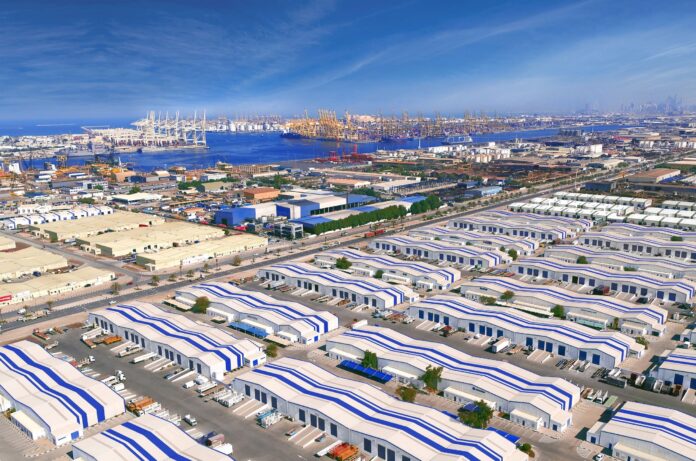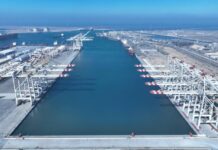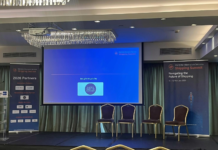
Jebel Ali Free Zone (Jafza) has marked its 40th anniversary with record-breaking trade volumes of US$190 billion over the last 12 months, translating to a 15% year-on-year increase and its highest ever contribution to Dubai’s economy.
The milestone underscores the enduring strength of Jafza’s model – a purpose-built ecosystem integrating a major port, world-class logistics infrastructure and business-friendly policies. The free zone has helped Dubai navigate four decades of disruption, from regional conflicts and financial crises to pandemics and today’s global trade tensions.
Established in 1985 as the Middle East’s free zone with just 19 companies, Jafza now hosts more than 11,000 businesses.
In the past 20 years alone, Jafza has attracted more than US$30 billion in foreign direct investment (FDI) to Dubai and, alongside Jebel Ali Por,t created over one million direct and indirect jobs.
Sultan Ahmed bin Sulayem, Group Chairman and CEO of DP World, said: “It is fitting that Jafza has made its greatest ever contribution to trade in its 40th year. Over the past four decades, it has proven to be an anchor of resilience and now serves as a blueprint for our approach to economic zone development. Whether replicating Jafza’s success or adapting it to local needs, we see every free zone as a platform for shared growth.”
Jafza’s success has become a template for DP World’s global expansion. The concept is now in place across 11 economic zones in Europe, India, Africa and the Americas – with three more in development.
Today, Jafza attracts nearly 75% of Dubai’s FDI in manufacturing, trade and transport, as a hub for companies across sectors from electronics, automotive, pharmaceuticals, food, petrochemicals and advanced manufacturing.
Abdulla Bin Damithan, CEO and Managing Director of DP World at GCC, commented: “Dubai has undergone one of the most dramatic urban and trade transformations in modern history — from a modest desert town with basic infrastructure to a global metropolis that is considered one of the smartest and most future-ready cities in the world. Its population has grown from 500,000 to 3.6 million and its economy has diversified with less than 1% of its GDP coming from oil, which is now driven by tourism, real estate, trade, aviation, and finance. The Jebel Ali ecosystem has had a big role to play in that, with modern infrastructure and business-friendly policies that have created a multimodal trade platform connecting over 3.5 billion consumers.”





